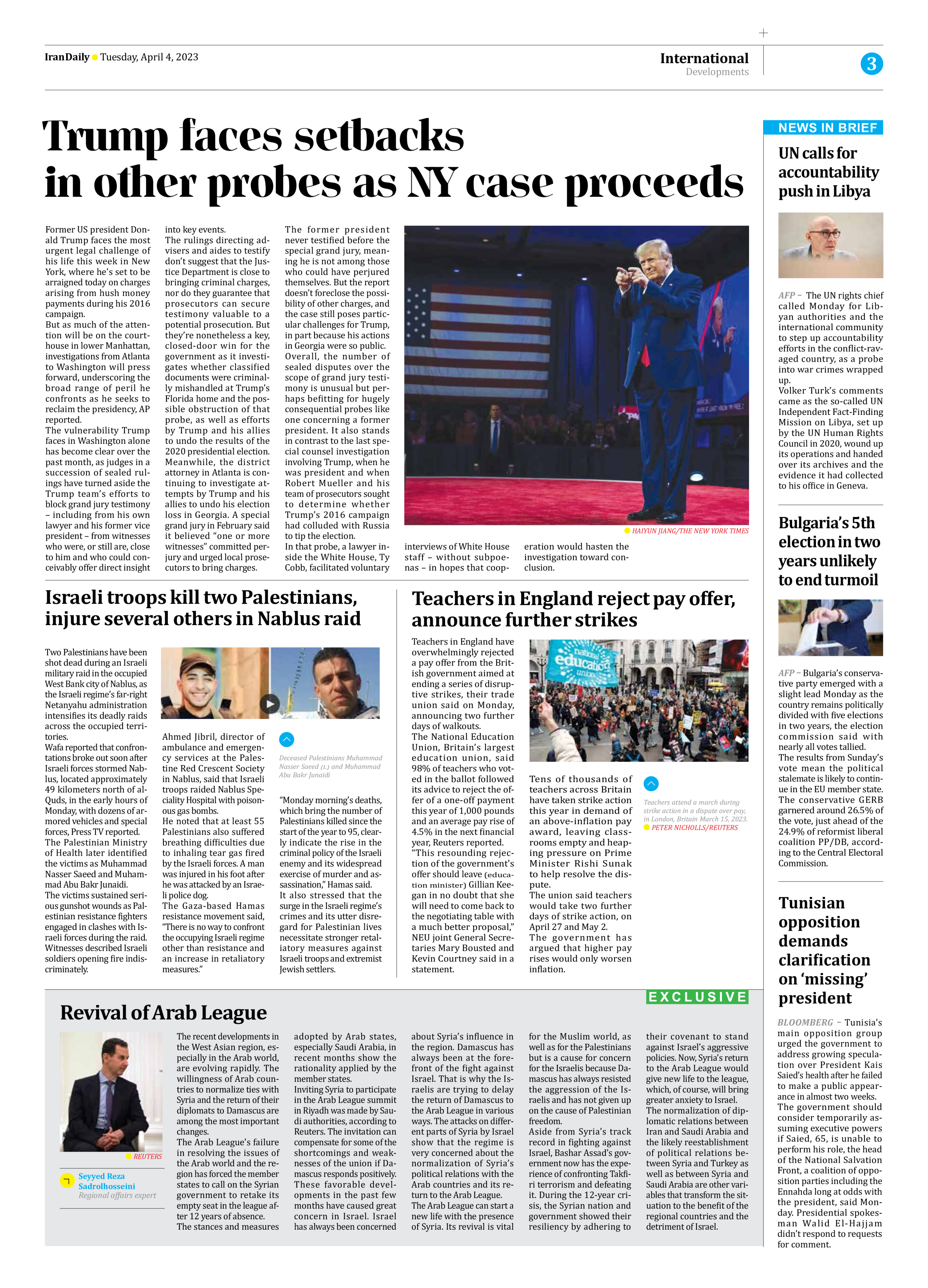
Trump faces setbacks in other probes as NY case proceeds
Former US president Donald Trump faces the most urgent legal challenge of his life this week in New York, where he’s set to be arraigned today on charges arising from hush money payments during his 2016 campaign.
But as much of the attention will be on the courthouse in lower Manhattan, investigations from Atlanta to Washington will press forward, underscoring the broad range of peril he confronts as he seeks to reclaim the presidency, AP reported.
The vulnerability Trump faces in Washington alone has become clear over the past month, as judges in a succession of sealed rulings have turned aside the Trump team’s efforts to block grand jury testimony – including from his own lawyer and his former vice president – from witnesses who were, or still are, close to him and who could conceivably offer direct insight into key events.
The rulings directing advisers and aides to testify don’t suggest that the Justice Department is close to bringing criminal charges, nor do they guarantee that prosecutors can secure testimony valuable to a potential prosecution. But they’re nonetheless a key, closed-door win for the government as it investigates whether classified documents were criminally mishandled at Trump’s Florida home and the possible obstruction of that probe, as well as efforts by Trump and his allies to undo the results of the 2020 presidential election.
Meanwhile, the district attorney in Atlanta is continuing to investigate attempts by Trump and his allies to undo his election loss in Georgia. A special grand jury in February said it believed “one or more witnesses” committed perjury and urged local prosecutors to bring charges.
The former president never testified before the special grand jury, meaning he is not among those who could have perjured themselves. But the report doesn’t foreclose the possibility of other charges, and the case still poses particular challenges for Trump, in part because his actions in Georgia were so public.
Overall, the number of sealed disputes over the scope of grand jury testimony is unusual but perhaps befitting for hugely consequential probes like one concerning a former president. It also stands in contrast to the last special counsel investigation involving Trump, when he was president and when Robert Mueller and his team of prosecutors sought to determine whether Trump’s 2016 campaign had colluded with Russia to tip the election.
In that probe, a lawyer inside the White House, Ty Cobb, facilitated voluntary interviews of White House staff – without subpoenas – in hopes that cooperation would hasten the investigation toward conclusion.







